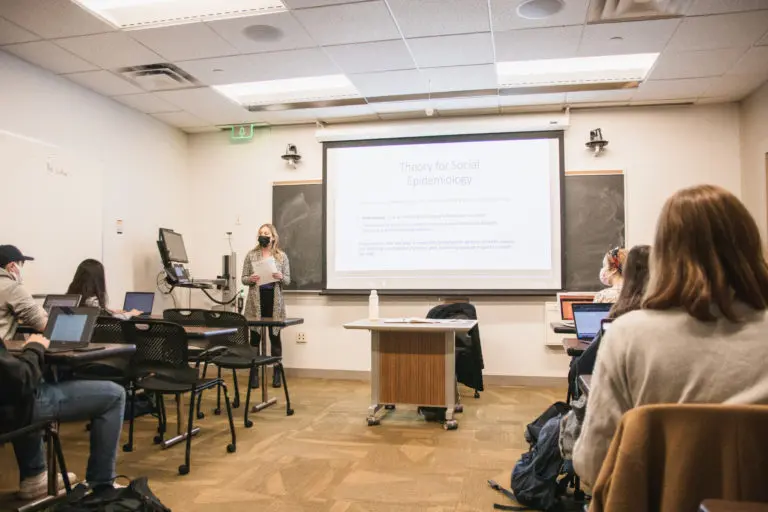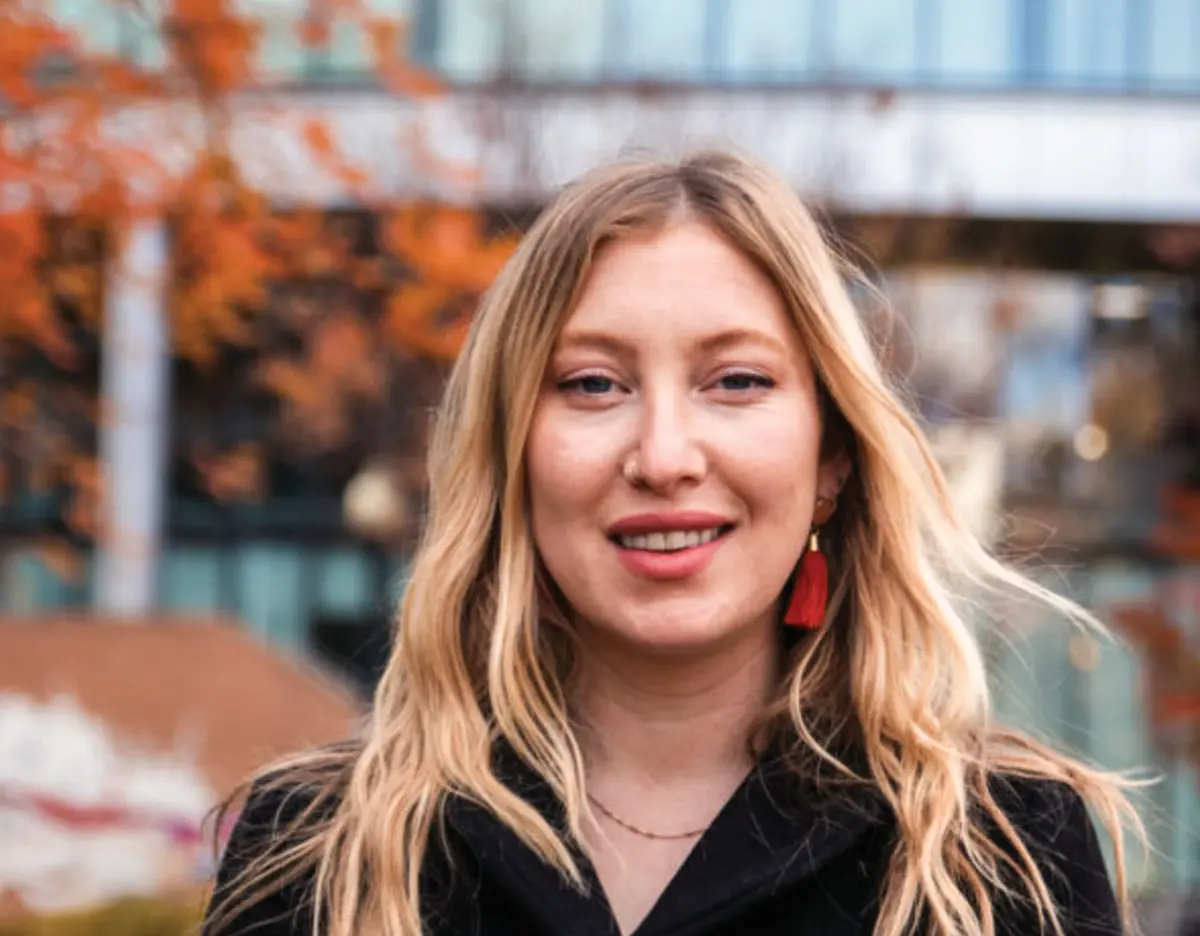The programs at Bouvé are engineered to put our students ahead of their peers. The college’s faculty and staff know what it takes to succeed in competitive fields that are in demand of graduates. You can read all the material put out by the school, but sometimes it’s best to hear it straight from one of our students, like Ashley Houston.
Population Health PhD student Ashley Houston smiles for a photo outside of Behrakis Health Sciences Center.
Q: Ashley, why did you choose Bouvé?
A: The opportunity to learn and conduct research in a collaborative and interdisciplinary environment was a major factor in applying to Bouvé. I came to the program [Population Health] to work with my advisor, Dr. Alisa Lincoln. Dr. Lincoln ran the Institute of Health Equity and Social Justice Research, which gave me the opportunity to continue research on refugee, immigrant, and global health. I was inspired by Dr. Lincoln’s research that crossed methodologies, disciplines, and departments at Northeastern.
Q: What is it that makes the program at Bouvé unique?
A: Bouvé’s core values of teaching, immersive and experiential learning, collaboration, and diversity and inclusion stand out to me. In Population Health, doctoral students are trained in research methodologies while also getting hands-on research experience. We also have opportunities to teach and mentor undergraduate students. Being able to have applied research experience and teaching experience upon graduating is incredibly unique!
Q: Can you talk about the opportunities you’ve had? How have they helped you?
A: While at Northeastern, I’ve been able to instruct two undergraduate courses. With mentorship from faculty, I’ve developed my own lectures for the courses. The Center for Advancing Teaching and Learning Through Research (CATLR) at Northeastern provides additional support and guidance in teaching. I’ve also been able to work on collaborative and diverse research at the Institute of Health Equity and Social Justice Research. Some of the projects I’ve been part of are as diverse as examining how theatre and performance impact health, to conducting quantitative analysis examining the impacts of refugees’ experiences with police on social belonging. On these research teams, I’ve been able to mentor undergraduate student research as well. I’ve helped oversee undergraduate posters presented at Northeastern’s Research, Innovation, Scholarship, and Entrepreneurship (RISE) conference—one of which won an award from the College of Social Sciences! It’s been incredibly fulfilling to work with undergraduate and master’s students in Bouvé.

Q: What has been your biggest challenge at Bouvé? How did you meet that challenge?
A: Research at Bouvé is often conducted across schools so connecting and building community—especially during COVID—has been challenging. With the help of my peers in the Population Health program, we’ve been able to find ways to create and maintain community by starting our Population Health Graduate Student Association and running a Graduate Student Seminar. The seminar helps doctoral students share resources, practice research presentations, proposals, and conference talks. Having peer support has been invaluable and has definitely helped create a strong sense of community at Bouvé!
Q: Can you talk a little about your work at the Kentucky Refugee Ministries?
A: Yes! While I was an undergrad, I volunteered at Kentucky Refugee Ministries tutoring elementary-aged refugee children. After volunteering, I interned in the Youth and Family Services Center. We realized that women with children were rarely represented in our English as a Second Language (ESL) classes and found out that childcare was a major barrier. We ran a program for women with children, which provided free childcare for women to attend our ESL classes because we realized that having English language skills would impact social and employment opportunities for refugee women in our community. I was able to teach English and help refugee women apply for jobs in the area. This experience definitely impacted my research at Bouvé on migration, employment, and health.
If Ashley’s answers about the curriculum here at Bouvé and her work in the Population Health Program sound like something you would like to pursue, learn more here.




